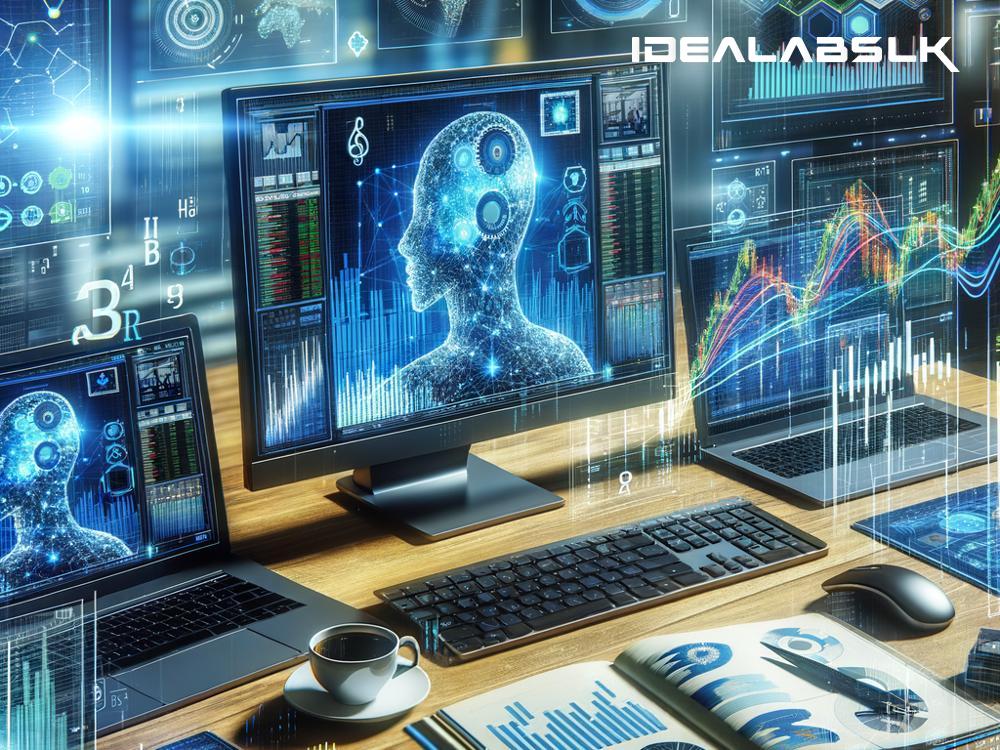AI in Trading: Simplifying Stock Market Investments with Predictive Analytics
In the fast-paced world of stock market trading, getting ahead often means being able to predict the future. Okay, not in a mystical, crystal ball kind of way, but through intelligent analysis and forecasting. This is where Artificial Intelligence (AI) shines, particularly through a tool known as Predictive Analytics. In simple terms, AI in trading is like having a super-smart assistant that helps you make smarter investment decisions.
The Basics of AI in Trading
First things first, what exactly is AI when we talk about trading? Imagine a computer program that can learn, adapt, and make decisions. This program scours through vast amounts of data, detects patterns we humans might miss, and even predicts future market trends. This is what we mean by AI in trading.
Predictive analytics, on the other hand, is a specific use of AI. It involves using data, statistical algorithms, and machine learning techniques to identify the likelihood of future outcomes based on historical data. So, it’s like looking back to predict what’s ahead, only with a level of efficiency and accuracy that far surpasses human capabilities.
How Does AI Improve Stock Market Investments?
Now, you might be wondering, how does all this tech talk translate into better investment decisions? Here’s a breakdown:
1. Spotting Trends and Patterns:
By analyzing historical and real-time data, AI systems can spot trends and patterns in the stock market that might not be obvious to human traders. This can help investors jump on opportunities or avoid potential pitfalls, improving the chances of making profitable trades.
2. Predicting Market Movements:
AI’s predictive analytics can forecast market movements by analyzing not just financial data but also news sources, social media, and other relevant information. This comprehensive approach can give investors insights into how various factors might influence the stock market, providing a competitive edge.
3. Risk Management:
Investing in the stock market is inherently risky. However, AI can help mitigate some of these risks by providing more accurate risk assessments. It can calculate the potential downside of investments and suggest diversification strategies to protect your portfolio from market volatility.
4. Automated Trading:
AI programs can not only make predictions but also execute trades at speeds and volumes that are humanly impossible. This automated trading ensures that opportunities are not missed due to delays and can help in executing complex trading strategies with precision.
Real World Applications and Success Stories
Businesses and financial institutions are already harnessing the power of AI in trading. Hedge funds, for instance, use AI to process data at an unprecedented scale to make investment decisions. Retail investors are not left out either; there are numerous AI-powered trading platforms and apps designed to help individual investors make informed decisions by providing stock predictions and trading recommendations.
One notable success story is that of an AI system that managed to outperform the stock market significantly by correctly predicting stock price movements. While it's true that not every prediction made by AI will be accurate—because the stock market can be influenced by unpredictable factors—on a large scale, AI systems have demonstrated a higher accuracy rate compared to traditional trading methods.
The Future of AI in Trading
As technology advances, the potential of AI in trading continues to grow. We are likely to see even more sophisticated AI systems that can process broader datasets, understand more complex patterns, and deliver even more accurate predictions. Additionally, as AI becomes more accessible, more investors will be able to leverage its capabilities, potentially leveling the playing field between professional traders and the average investor.
Conclusion
AI in trading, through predictive analytics, is transforming how we approach stock market investments. By providing insights into market trends, forecasting movements, managing risks, and enabling automated trading, AI technologies are helping investors make smarter, more informed decisions. While it’s not without its challenges and limitations, the intersection of AI and trading seems poised to redefine investment strategies and potentially democratize access to the financial markets. As we look to the future, it's clear that AI will play an increasingly significant role in the world of stock market investments.
So, whether you're a seasoned investor or just starting out, understanding and embracing the capabilities of AI could be your key to navigating the complexities of the stock market with greater confidence and success.

